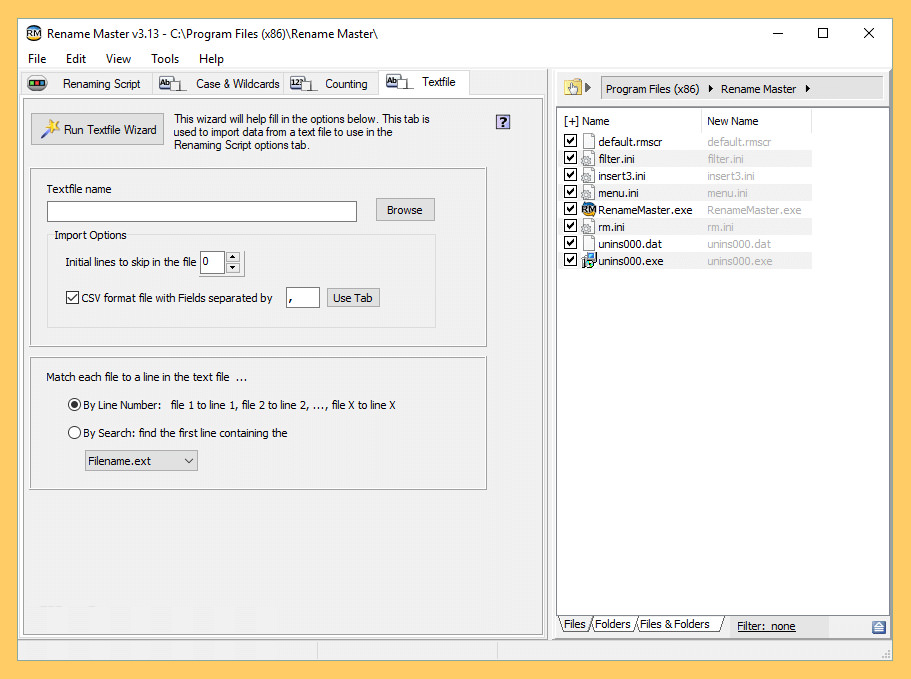
Type dir once more to review and confirm the changes.You can go over to match the longest filename, so ten question marks keeps any characters that fall under ten in every filename.Įxample: ren *.docx ?-Windows-Notes.* renames all “.docx” files, keeping the first six characters and adding “-Windows-Notes” to the end.

Using “ ?” keeps the first three original characters, “ ?” keeps first four, etc.Īdd as many “ ?” as you like. ?.* but replace the bracketed sections and choose how many “ ?” to add.

It also uses “*” as a wildcard for the filename so that it includes all of them that have the specified file extension (.jpg or whatever you select). This process uses “?” to determine how many characters you want to keep in the original part of the name. If you have any questions, please leave a comment below.Bulk Renaming Files: Add More Text and Less Characters using Command Prompt Now you have learned how to batch rename multiple files on Windows instead of renaming each file individually. Type the following command to rename multiple files in bulk and press Enter: ls | %Īfter you finish these steps, the files in the format you chose will be renamed using the naming structure given by the command. Navigate to the file path to rename example: cd c:\PATH\TO\FILES

Press the Windows key to open the Start menu, search for PowerShell, and click the top result to open the app. To rename multiple files in bulk when the name structure is not important, use these steps: Once you complete the steps, the command will change the file’s name to what you specified. Repeat the above steps to continue renaming other files.


 0 kommentar(er)
0 kommentar(er)
